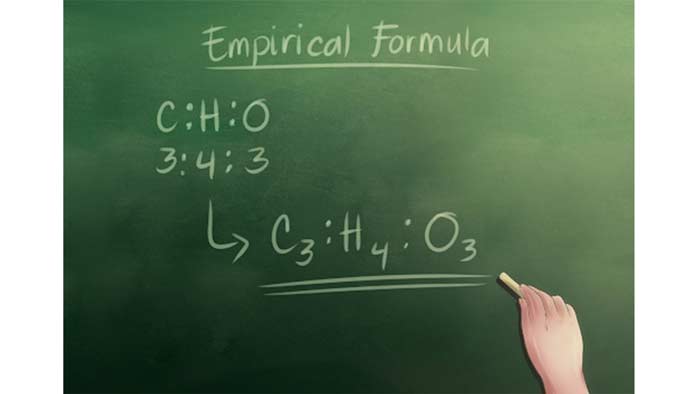What is Empirical Formula? How to Calculate Empirical Formula?
In chemistry, an empirical formula indicates the simplest whole number ratio of the atoms. It means that the exact number of atoms or molecules are not displayed by this formula, but an estimation is calculated.
Also, we have a very smart empirical formula calculator] that is specifically designed by the calculator-online.net to calculate this particular whole number formula of the compound. So let us discuss this specific kind of chemical formula in a little detail!
How to Find Empirical Formula?
Basically, you need to stick to the following key points while calculating for the empirical formula of any compound.
Step # 01:
Calculate the atomic mass of each and every element there in the compound sample
Element % = massing = m
Step # 02:
The next step is to calculate the number of moles of each atom there in the sample
m / atomic mass = Molar amount (M)
Step # 03:
After that, go by dividing the moles of all elements by the smallest number of the moles determined in the previous step
M / least M value = Atomic Ratio (R)
Step # 04:
Now the last step is to multiply the final ratio by the suitable number that may make teh whole numbers as whole
R * whole number = Empirical Formula
The best online empirical formula calculator also considers the same steps while determining the simplest whole number ratio formula of any chemical compound
Example:
Suppose you analysed a compound. What would be the empirical formula for the compound if the elements in it have the following proportions:
Ca = 13.5g
H = 0.675g
O = 10.8g
Solution:
As the mass of each element is given, so we will determine the number of moles in it:
13.5 g Ca x (1 mol Ca / 40.1 g Ca) = 0.337 mol Ca
10.8 g O x (1 mol O / 16.0 g O) = 0.675 mol O
0.675 g H x (1 mol H / 1.01 g H) = 0.668 mol H
Dividing the number of moles by the smallest whole number mole:
0.337 mol Ca / 0.337 = 1.00 mol Ca
0.675 mol O / 0.337 = 2.00 mol O
0.668 mol H / 0.337 = 1.98 mol H which rounds up to 2.00
CaO2H2
The free online calculator also determines the same results but in seconds that saves you a lot of your precious time.
How To Use an Empirical Formula Calculator?
The use of the best combustion analysis calculator has no doubt made it possible to look for the instant calculations regarding empirical formulas. Let us guide you how you could utilise this tool!
Just enter the elements and their relative percentages in the compound.
After you do that, it is time to hot the calculate button and the tool will display the final results right there on your device screen
Wrapping It Up:
A chemical formula is the expression that contains symbols and subscripts that define the quantity of elements in a compound. And empirical formula calculator is the only tool that helps you calculate the simplest form of this chemical name of any compound.
